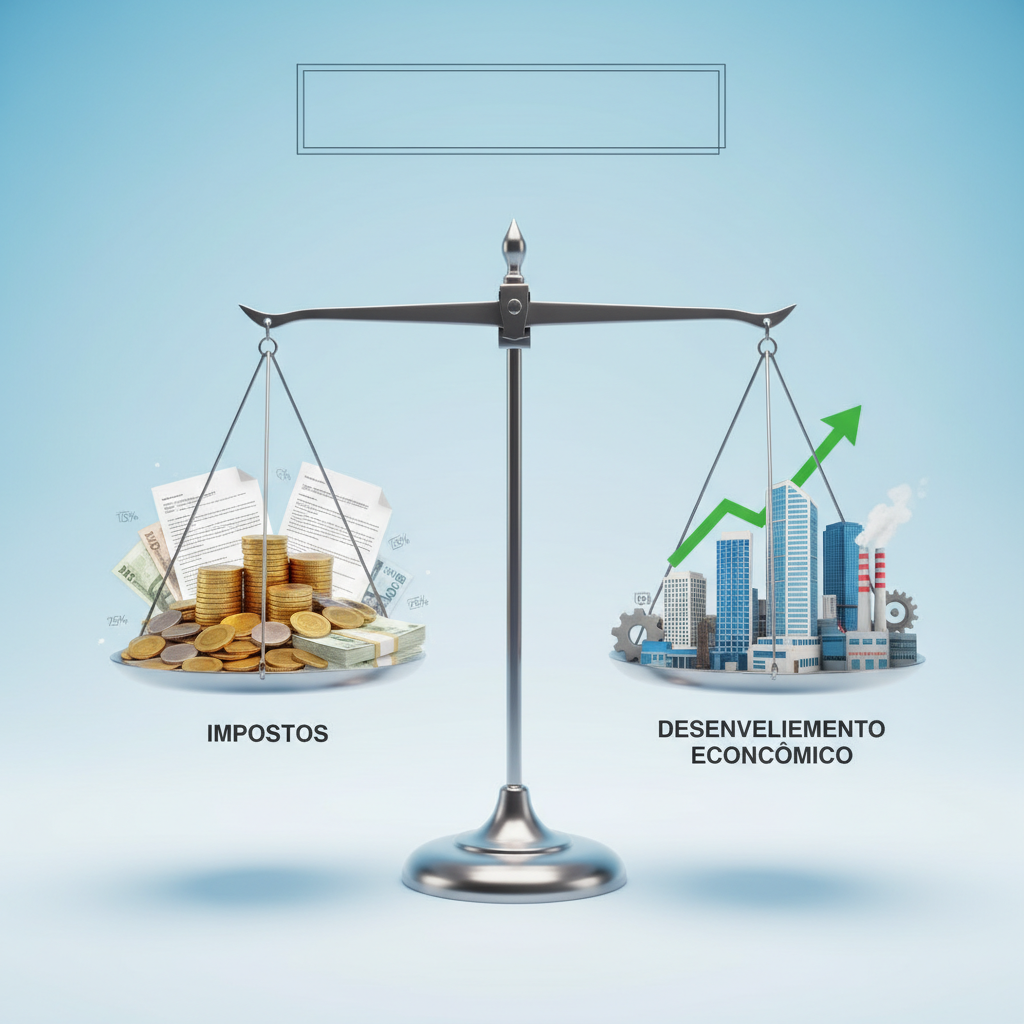Impact of taxes on the economy
Taxes play a crucial role in the economy, affecting investment, savings, employment and income distribution. These elements are fundamental for sustained economic growth.
An increase in the tax burden can decrease incentives to accumulate capital and generate income, which can slow investment and business development. However, they also finance essential public services.
Influence on investment and savings
Taxes directly impact the ability and willingness of companies and people to invest and save. When the tax burden is high, the capital available for productive projects is reduced.
This limits innovation and business growth, since resources that could be allocated to technological improvements or business expansion are reduced. Investment becomes less attractive under high taxes.
On the other hand, well-designed taxes may not negatively affect these variables if they are properly balanced with incentives for savings and productive investment.
Effect on employment and income distribution
Taxes also impact the labor market, affecting job creation. High tax burdens can discourage hiring and limit economic dynamism.
Furthermore, progressive taxes can help reduce inequalities, promoting a fairer distribution of income and strengthening social cohesion.
A balanced tax system manages to combine the generation of public resources with policies that favor employment and social equity, benefiting long-term economic development.
Negative effects of the tax burden
The high tax burden can have negative consequences on the economy, mainly affecting growth and production. The reduction in GDP is one of the main associated concerns.
Furthermore, taxes can discourage productive economic activity, limiting growth capacity and job creation in the long term.
Reduction of GDP and economic growth
An excessive increase in taxes tends to decrease private investment, which reduces the growth rate of the Gross Domestic Product (GDP). This occurs because the capital available for new projects falls.
Likewise, economic growth is affected by the decrease in capital accumulation and innovation, essential factors to expand the productive capacity of an economy.
Lower investment can translate into fewer jobs and lower tax revenues in the long term, creating a vicious cycle that limits sustainable economic progress.
Taxes on companies and productive disincentives
Taxes on companies are often the most detrimental to investment, reducing profits and the ability to reinvest in improvements and expansion.
This generates a disincentive to production and the creation of new companies, affecting economic dynamism and job creation in key sectors.
High tax rates can cause companies to seek strategies to evade taxes or pass costs on to consumers, disrupting economic efficiency.
Distortions in relative prices and economic decisions
Taxes can distort relative prices in the economy, affecting the efficient allocation of resources between sectors and products.
These distortions influence individuals' savings, consumption and work decisions, which can change their behavior to minimize the tax burden.
As a result, economic inefficiencies and lower productivity are generated because price signals do not reflect the true scarcity or relative value of goods and services.
Positive role of taxes in development
Taxes play an essential role in financing productive public spending, including education, health and infrastructure. These investments contribute to sustainable development and improve the quality of life of the population.
Furthermore, a well-designed tax system allows income to be distributed more equitably, strengthening social cohesion and promoting inclusive economic growth that benefits all sectors.
Financing of productive public spending
Taxes provide the resources necessary for the State to invest in fundamental public goods such as schools, hospitals and roads. These investments increase human and physical capital.
An adequate allocation of public spending, promoting productive sectors, creates a favorable environment for private investment and long-term sustainable economic development.
Without these fiscal resources, essential infrastructure and services would be insufficient, affecting general well-being and limiting opportunities for growth and social progress.
Income redistribution and social cohesion
Progressive taxes allow the tax burden to be greater for those with more income, thus reducing economic and social inequalities.
This redistribution fosters social cohesion by providing people in vulnerable situations with access to public services and development opportunities.
By improving equity and reducing poverty, taxes are part of a comprehensive strategy to achieve inclusive development and strengthen social stability.
Balance and design of the tax system
A balanced tax system is essential to enhance economic development without generating excessive burdens. Proper design seeks to maximize efficiency and equity.
Taxes must be structured to avoid disincentives to investment and work, while guaranteeing resources to finance public services that promote social well-being.
Consequences of excessive or poorly structured taxes
Very high or poorly designed taxes can generate negative consequences such as less investment and economic slowdown. Excessive tax burden reduces the capital available for new projects.
In addition, they generate tax evasion and distortions in the economy that affect efficiency. The optimal allocation of resources is difficult and the informal economy is encouraged, affecting collection.
These effects harm growth, limit job creation and reduce the country's competitiveness, hindering long-term sustainable development.
Importance of adequate implementation for sustainable development
A correct implementation of the tax system makes it possible to finance productive public spending and promote social investment in areas such as education and infrastructure.
In addition, it contributes to the equitable redistribution of income, strengthening social cohesion and reducing inequality, key factors for inclusive and sustainable growth.
Tax design must be transparent and efficient, promoting formalization and facilitating tax compliance, which improves economic stability and taxpayer confidence.






